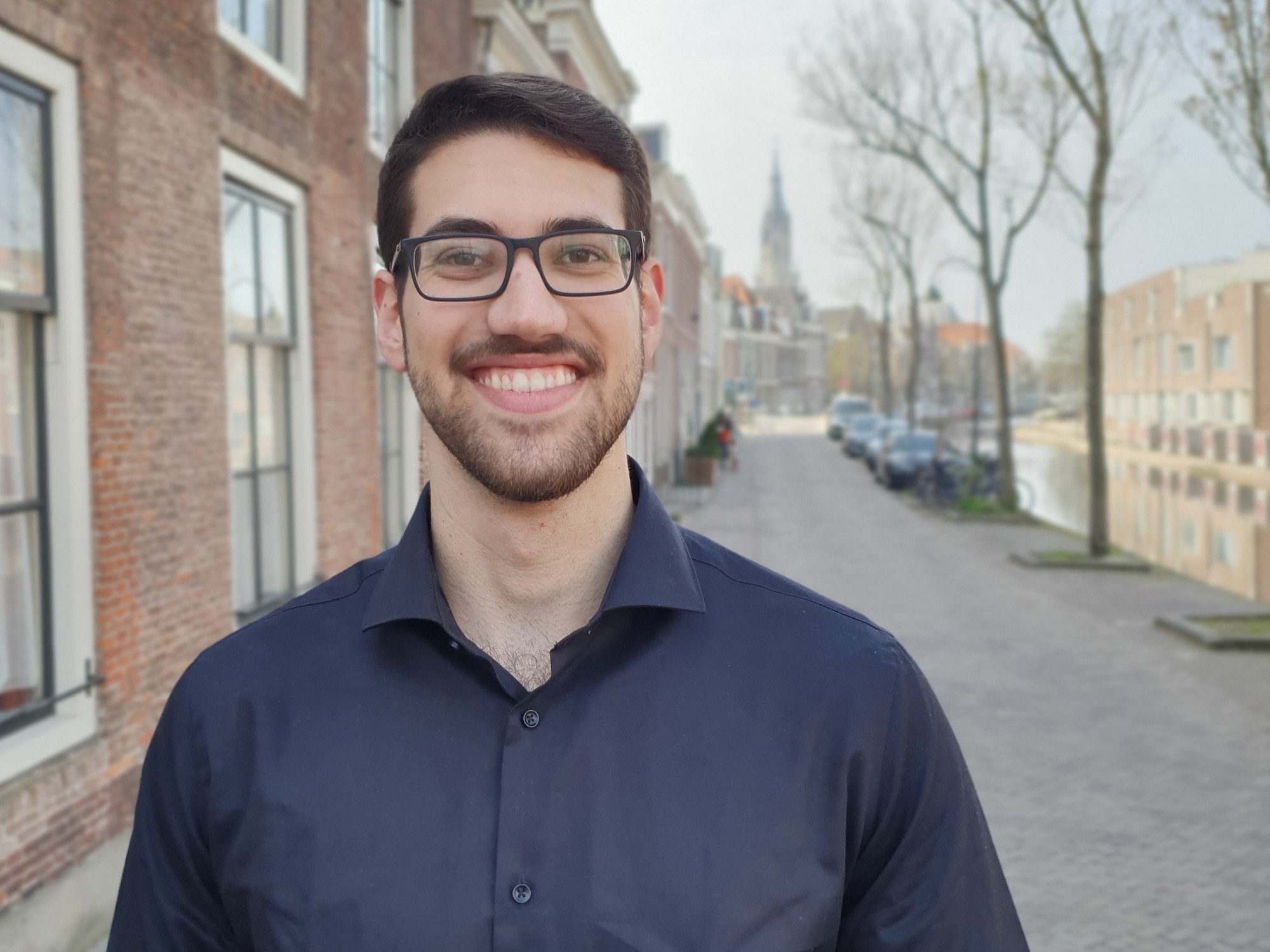“I want to leave my ‘print’ before I leave this planet,” says bachelor’s student and entrepreneur Mustafa Agbaria.
Mustafa Agbaria: “Using hydroponics means growing without soil so you can grow plants almost anywhere.” (Photo: personal collection)
“I am half Palestinian and half Dutch but I was born in Israel. I came to the Netherlands in 2019 to study electrical engineering here at TU Delft. Shortly after I started my studies we went into lockdown. During that time, I started eating worse and not working out or going out. I decided to try and improve my diet so I started looking on the internet and found something called microgreens. From that I learned about vertical farming and hydroponics which is growing plants in water instead of soil. Coming from the Middle East, especially Palestine, this seemed like something that could solve so many problems. But then I read more and it was mostly about growing things like lettuce. You’re not going to feed many people with lettuce. I started thinking about that and came across an idea to grow potatoes if I changed the method a little bit. That’s what my start-up, Habbi, is based on – building climate-resistant food systems.
I have most of the technical pieces set and now I am building a prototype. I hope to get that done before April because it’s spring which is potato planting season. Using hydroponics means growing without soil so you can grow plants almost anywhere. If I can prove that it works then this can be implemented in places like Egypt and other places in Africa and Asia that have little arable land so they can’t grow all of the necessary food. Another cool thing about this method is that it uses almost 90% less water than a field-grown vegetable, specifically those with leafy greens.
Right now, I am taking a gap year to focus on my start-up. During this time, I came across the 4TU, an alliance of the four universities of technology in the Netherlands. One thing led to another and I joined a team called Aanjagers van Technologie (Drivers of Technology, in Dutch), a group of ambitious students who want to help accelerate transitions through technological innovations in five key sectors: agriculture, energy, circular economy, digital safety, and healthcare. We work with the four universities, private companies and researchers to make this happen.
‘People don’t really know how their choices affect the food system’
There is a team for each sector and I’m on the agriculture team. I’m working on a project with Douwe de Jong, a student at Wageningen University & Research. We want to assist in developing a module that can be implemented for high school students. It will focus on the current challenges of agriculture. Why are things being done the way they are and what are the consequences? What are the innovations taking place and, maybe the most important part, how can students be part of that?
In our project, we look at both the consumer behaviour side of things as well as the lack of innovation in agriculture. People don’t really know how their choices affect the food system. Everyone wants the cheapest thing, they want a straight large cucumber or a perfectly round tomato that is bright red. These consumer decisions are what lead farmers to make unsustainable decisions. They have loans that need to be paid back and they can’t invest in innovation because the consumer side doesn’t allow for that. The other thing is that people are really not interested in agriculture. That leads to a rather dramatic lack of innovation in the sector. If you look at graphs of how CO2 emissions have declined, agriculture is really lagging behind. We think people not being educated on how or why they should make different choices and people not innovating in the sector are the cause. Hopefully this module we are helping to develop will help tackle both problems.
We think education is the best platform for innovation. Right now, we are looking for opportunities to collaborate with NLT (Natuur Leven Technologie, Nature Life Technology) to help develop the module for Dutch secondary schools. But we are also looking at the global view to see if there might be an opportunity to work with UNICEF to implement a similar programme in Israel and Palestine.
I am somewhat of an ambitious person so I have a lot of goals. Of course, going back to study with my friends and finishing my bachelor’s degree would be nice. But one thing is clear, that I want to leave my ‘print’ before I leave this planet.”
Want to be featured in Humans of TU Delft? Or do you know someone with a good story to tell? Send us an e-mail at humansoftudelft@gmail.com
Heather Montague / Freelance writer



Comments are closed.